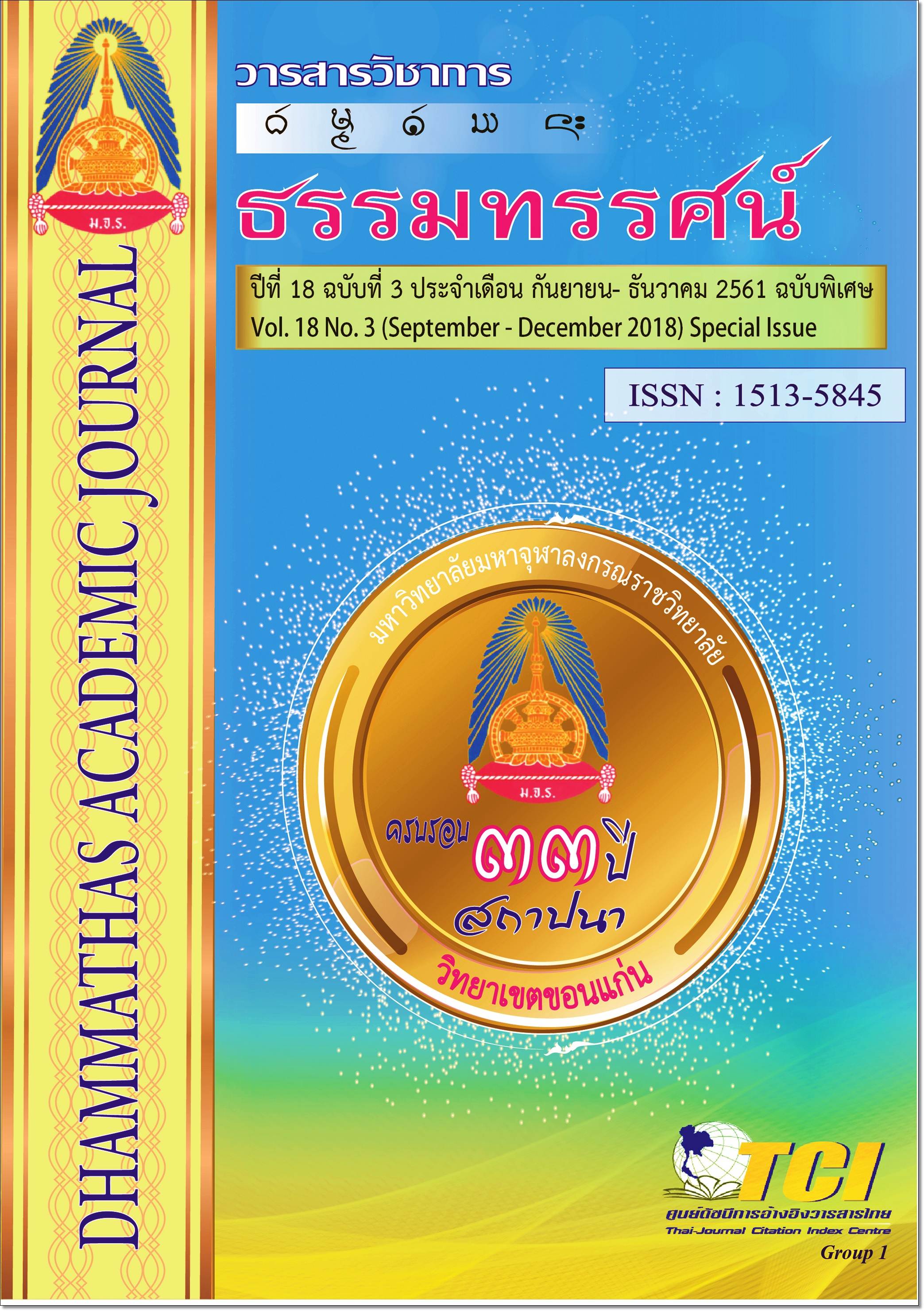Monastery Management According to the Buddhist Concepts Affecting Organizational Justice in the Upper-Northeastern Region 1 of Thailand
Main Article Content
Abstract
The objectives of this research were; 1. To study the relationship between monastery management, Buddhist concepts and organizational justice; 2. To analysis the relationship between monastery management, Buddhist concepts and organizational justice; and 3. To analysis the developing guideline to develop monastery management based on Buddhist concepts toward organizational justice. The researcher adopted mixed methods, namely; quantitative research and qualitative research. The research developed a 53 item questionnaire as a research instrument constructed from review literature. Based on 30 samples were not the populations, the results of validity test showed that the reliability coefficient of the overall scale was 0.95. And a confidence item between 0.342-0.820 and then collected from a sample of 358 people comprised of Buddhist Monks in Buddhist temples and meditation centers in the region of the Upper-Northeastern of Thailand, with five provinces before statistical analysis for the lead. To be interpreted together with the data obtained from interviews of 12 highly qualified.
The research results identified that: years of ordination of Buddhist monks different opinions about different organizational justice. Elements, administration and public facility of Buddhist monks are predictive coefficient organizational justice as statistically significant at the 0.05 level. The Buddhist concepts are predictive elements of organizational justice including the Buddhist concepts implementation and the ways of human life.

